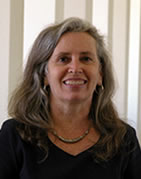
Cynthia Ledbetter, Ph.D., Professor Emerita

Since graduating from Texas A&M and coming to UT Dallas in 1987, I’ve gotten used to so very little maroon amongst all the burnt orange. Together with Dr. Fred Fifer we’ve written a dozen laboratory manuals directed at giving pre-college students experiments requiring critical thinking. I’ve also directed several grants to teach teachers how to motivate students by showing the interrelationships of the sciences to daily life, and conducted more than 400 inservice programs for local school districts. My teaching duties include courses at UT Dallas, and work with St. Philips School in Dallas. As well as teaching here and across the United States, I’m also actively directing doctoral work for students from Curtin Institute of Technology in Perth, Australia.
Two major areas are the foci of my teaching. The first concentrates on helping teachers understand and perform research. Evaluating Research in Science Education involves the selection and analysis of science education research concepts as applied to various topics in the sciences taught in elementary and secondary schools and in community colleges. Students produce a position paper based on their particular school situation. Research Design and Methodology in Science Education follows Evaluating Research in Science Education and includes the interpretation of data-based research, selection of a research problem, review of the literature, design and execution of a research project.
My second teaching interest is science as practiced in the natural environment. Ecology is based on general ecological principles as related to productivity, population diversity, communities and ecosystem functions. Field data collection techniques are taught through a series of activities in a natural environmental area such as Yellowstone National Park, Big Bend National Park, the ‘Big Island’ of Hawaii and even in the DFW Metroplex.
Environmental Field Methods uses ands-on activities explore the properties and qualities of water through traditional and digital sampling methods. Designed for teachers, this inquiry-based course addresses information technology and environmental science standards in the context of real-world constructivist practice.
Both of these teaching areas have converged into the online strand of the MAT in Science Education, which was launched in August 2006.
My work with teachers and indirectly with their students has fueled my research interest in constructivist learning environments. This research seeks to uncover the perceptions students have about how events (student interactions to content taught to pedagogical practices) that occur in their classrooms and their school affect their learning. Learning environment research also applies to the learning environment that occurs on field trips during environmental science classes. Now my interest is expanding to include research into online learning environments. This is an exciting area because of the increase in the use of online learning for students in elementary through graduate school.